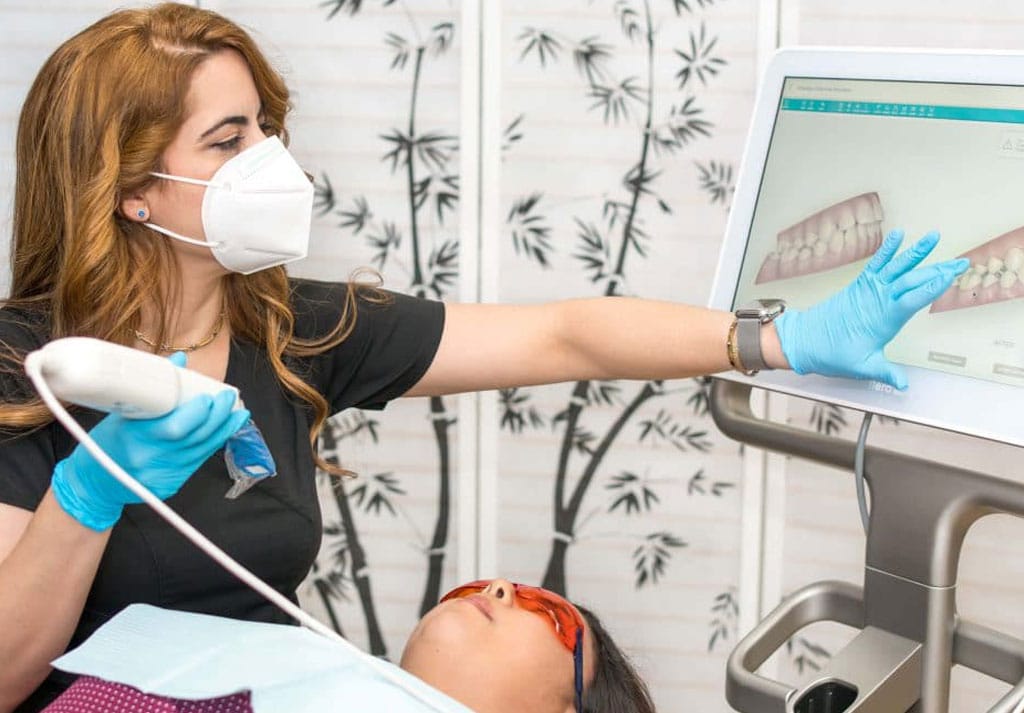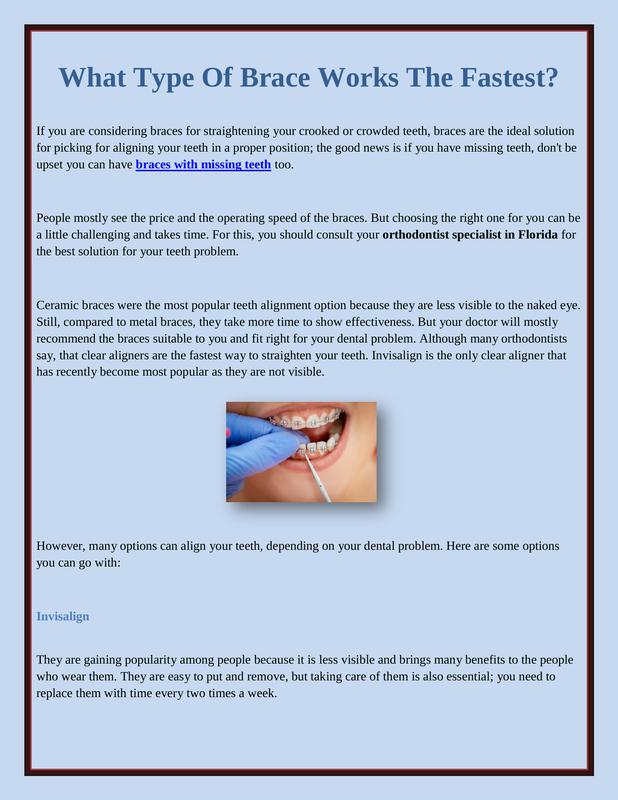What Questions To Ask Your Child's Dentist?

Will Children Sucking Their Thumb Hurt Their Teeth?
How Should I Teach My Child to Brush Their Teeth?
Flossing Is Important?
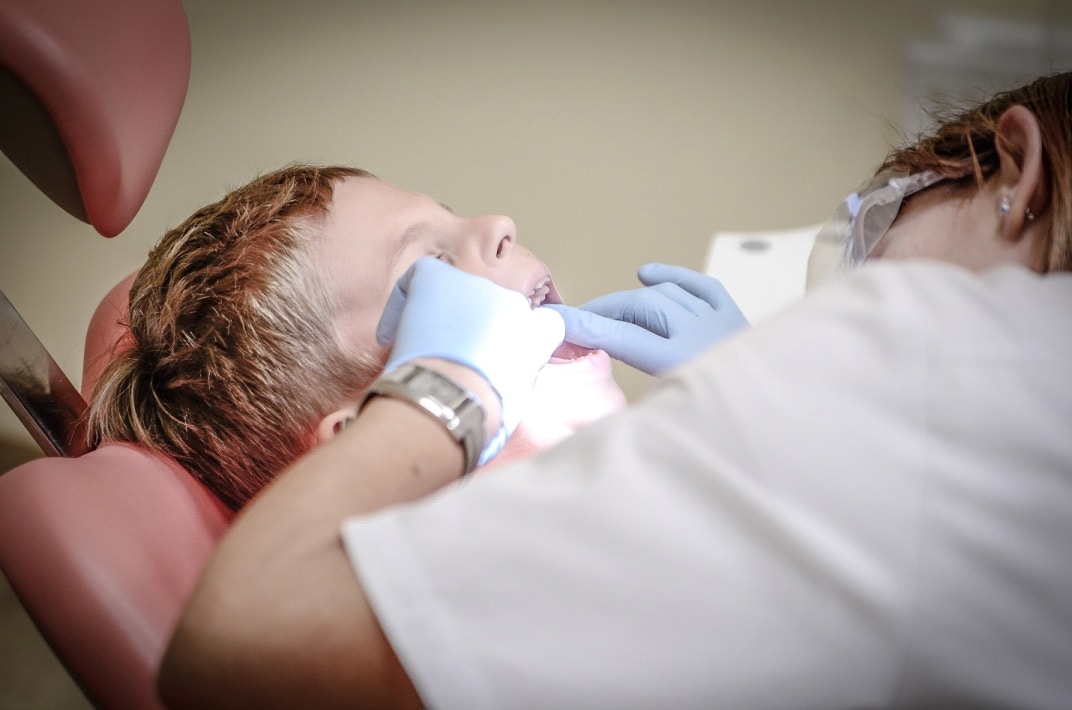
When Should First Teeth Come Out?
In Conclusion:
Talking to your child's dentist is the best way to relieve your worries about your child's oral issues. Contact and visit your Miami childrens dentist if your child needs a dentist. Book an appointment now. Article source : https://www.invisibleparticles.com/what-questions-to-ask-your-childs-dentist/What Do You Know About Lingual Braces?
biscayne park orthodontistLingual braces function to treat alignment issues by positioning brackets and wires on the teeth and inside the mouth, much like traditional braces do. However, lingual braces miami stand out since they are practically unnoticeable. Dentists place them on the back of the teeth, facing the tongue, instead of the front. Due to this, lingual braces offer a more discrete option for orthodontic patients who don't want to wear traditional braces for a long time. They are increasing in popularity among both children and adults as a result.
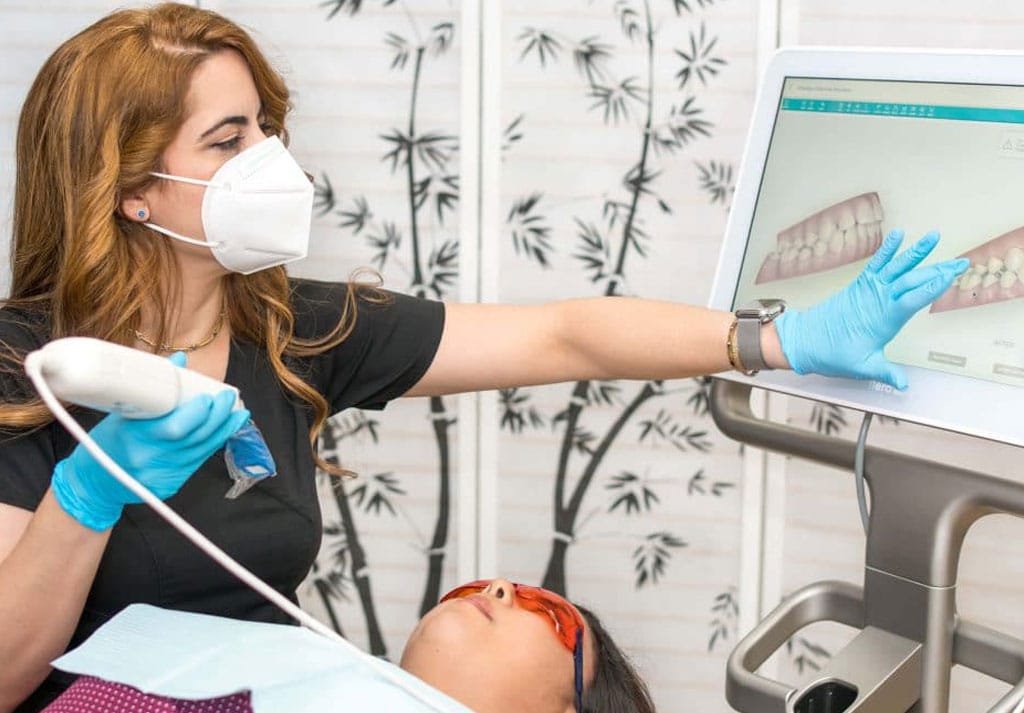
How do dentists place lingual braces?
According to orthodontics specialists of Florida, using an impression of the patient's teeth, the brackets for lingual braces are made to fit each patient's mouth precisely. They must be fitted onto each tooth to rectify misalignments. To best serve each patient, it is also necessary to customize the cables that connect each bracket.
The ideal fit is crucial when placing lingual braces because the brackets and wires are trickier. The orthodontist has significantly less space to work with and has a more challenging time getting to the backs of the teeth. All brackets are cemented on the teeth simultaneously, using a specialized tray to position the lingual braces correctly.Will lingual braces give you a lisp?
Yes is the quick response. Your tongue hits the backs of your teeth as you talk to produce specific sounds. Your speech will be altered when you initially get lingual braces since the brackets are on the back sides of your teeth. According to biscayne park orthodontist, all dental braces have the potential to change your speech patterns temporarily. Still, lingual braces have the potential to change your speech for a month or longer. According to an affordable braces Miami dentist, the type of brackets your orthodontist chooses could affect the severity of your speech problem. Some patients have gotten rid of their lingual lisps using speech treatment methods. However, your tongue will eventually acclimatize to the braces, and your speech should resume.What are the significant advantages and drawbacks of lingual braces?Benefits
The main advantage of lingual braces for many patients is the ability to be more covert when correcting their teeth. Adults are advised against enduring years in social or professional environments while sporting massive metal braces. All the benefits of metal braces are available to patients with lingual braces, which are less obvious and are hidden under the teeth.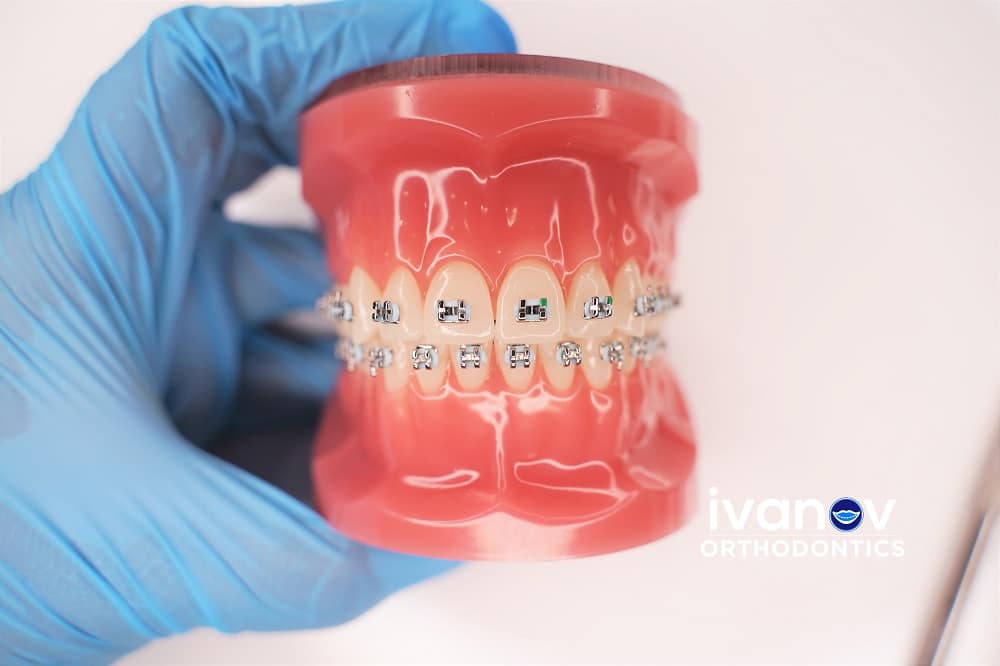
Disadvantages
Using lingual braces may be challenging for patients with a significant or deep overbite. This is due to the risk of brackets affixed to the backs of the teeth coming free due to an overbite being unduly stressed. Your orthodontist can inform you if this will be a problem in your particular circumstance. Speaking may also be hampered by lingual braces, especially as patients adjust to them after the brackets are placed.Conclusion
The above-provided details and information will help you learn some exciting facts and aspects regarding lingual braces. For more informative facts and updates, please visit ivanovortho.com. Article source : https://www.vetteblog.com/what-do-you-know-about-lingual-braces/What Are The Consequences Of Avoiding Deep Dental Cleaning?
Many people do not visit the dentist for a deep cleaning because they think deep cleaning can cause sensitivity and pain in their teeth. Still, with these one or two Disadvantages of deep cleaning teeth, you can avoid many oral health problems such as gum disease and tooth decay.
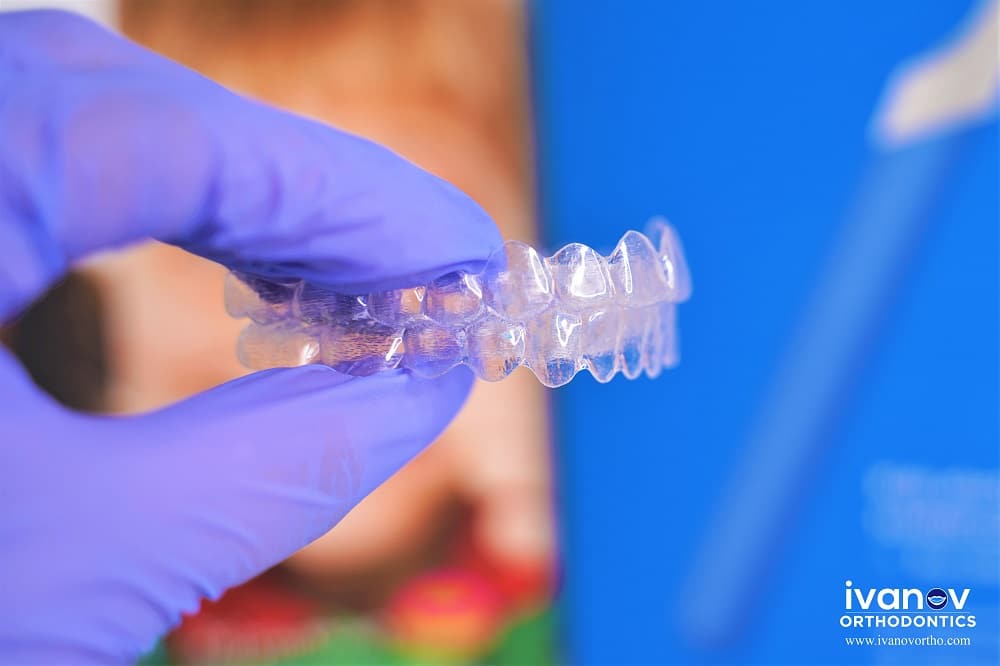
Teeth Discoloration:
You can easily discolor your teeth with daily food and drinks. These drinks and foods can discolor your teeth and cause stains. By avoiding these foods and beverages, you can minimize stains by staying on top of your daily brushing and flossing habits. Regardless of brushing and flossing daily, you can likely have stains in your teeth. Visiting your dentist for routine dental checkups and cleaning your teeth can help stop some surface stains you miss while brushing. Usually, children don't clean their teeth properly, so you must attend appointments with your Miami children dentist. To prevent discoloration and avoid worsening the situation of your child's teeth, book an appointment now!Gum disease
One of the most common diseases is a gum infection which can cause many issues to your health. When you first feel the pain and discomfort in your gums. Gum disease occurs when harmful bacterias develop in the mouth. When you receive dental cleanings, your mouth becomes free of plaque, tartar, and cavities. Dentists usually suggest deep cleaning if you have signs of gum disease. Gum disease in the early stage can be reversed; you need to take a good oral care routine to prevent gum disease. With the help of deep dental cleaning, you can reverse gum disease. Suppose you need to treat the disease early. In that case, it can cause side effects of periodontitis, including receding gums and tooth loss. You risk all of the consequences that can come up with gum disease if you avoid dental appointments.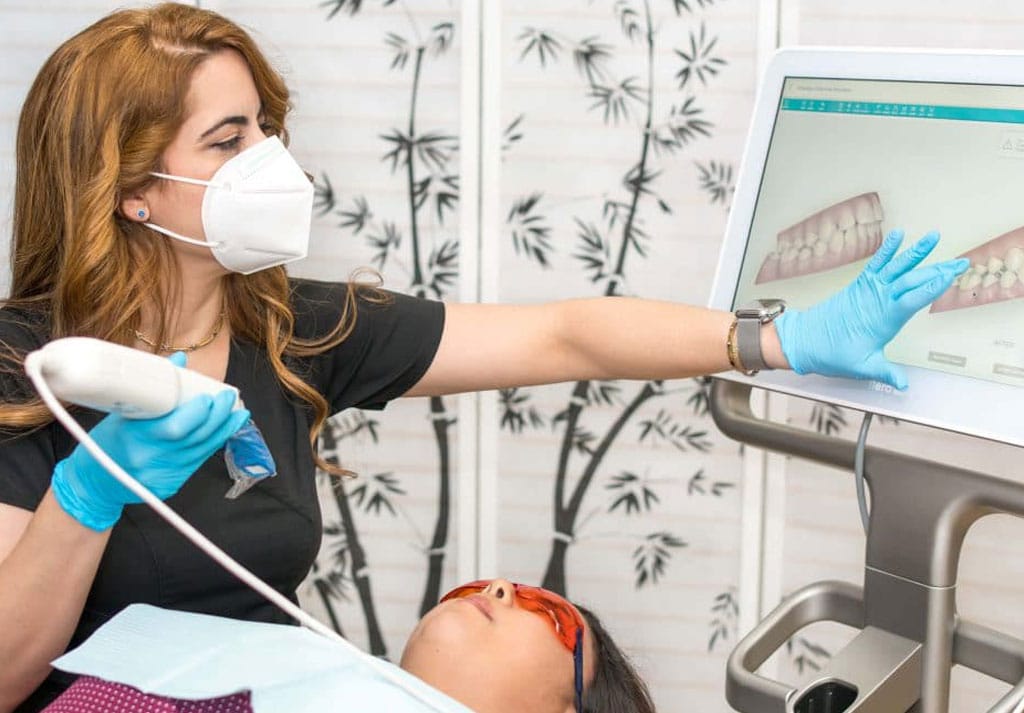
Tooth Decay
When you do not visit the dentist, you may develop the risk of tooth decay. Skipping your routine checkups can cause many oral issues, and one of them is tooth decay. Tooth decay can cause pain and swelling in your teeth, and it is necessary to visit your dentist to know the reason for the pain and discomfort.In Conclusion:
Your teeth are linked to your whole body system, not only for cosmetic reasons. They maintain your physical appearance and health. Visit your orthodontist in Hialeah every 6 months to maintain good oral and overall health. The consequences of not visiting your dentist can be harmful. Some effects of avoiding the dentist can be teeth discoloration, dull teeth, gum disease, and tooth decay. Book an appointment now!
What Are The Pediatric Dentist Treatment Options?
Temporary teeth have permanent implications.
Even though infants' teeth are only there for a short time, their impacts last a lifetime. Strong baby teeth make it easier to learn to speak, chew on healthful meals, and smile with assurance. Baby teeth also function as temporary replacements for permanent teeth. Therefore, neglecting damage to these teeth now could have serious repercussions later.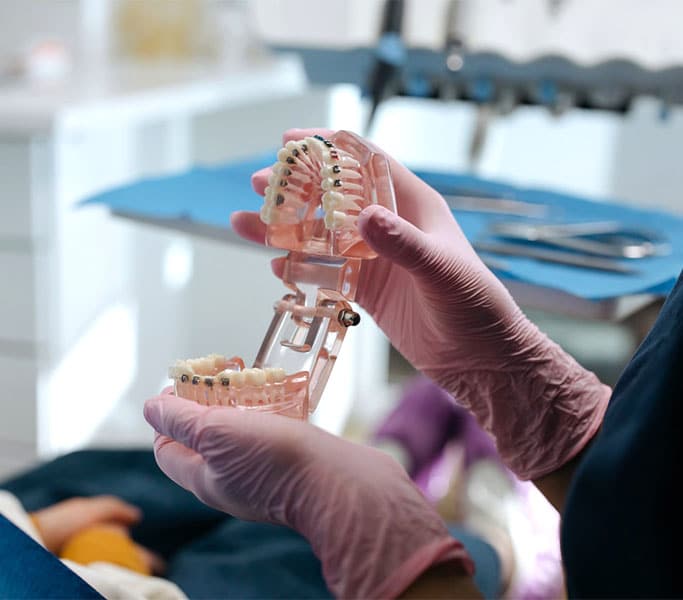
What are the types of pediatric dental procedures?
According to a bay harbor islands orthodontist, kids come in different sizes and shapes do their dental needs, which is why pediatric dentistry includes a wide range of treatment options.Cleanings and preventive care.
The recommended interval between pediatric dental appointments is every six months. Your kid can get a thorough cleaning of their teeth at this appointment. Additionally, people can evaluate how well-versed they are in dental hygiene. It also lets the MetLife dentist near me closely monitor their dental health. It is crucial because it enables treatment at an early stage when it is easier and less expensive.
Fluoride.
Fluoride treatments promote tooth durability. They can lessen plaque and tartar buildup and guard against cavities.Extractions
Tooth extraction is another routine pediatric dental operation. As shocking as it may seem, many kids need an extraction while still young. A pediatric dentist may suggest tooth extraction when teeth are infected beyond repair or insufficient space in the mouth for them.Fillings.
Dental fillings are one of the most common dental procedures carried out by pediatric dentists. Cavities can form in children's teeth due to their susceptibility to tooth decay. Cavities are typically treatable with a quick and easy dental filling treatment. Dentists will numb the infected tooth and remove the damaged parts.Sealants.
Sealants are small, resin-based coatings that adhere to teeth' chewing surfaces. They prevent degradation in difficult-to-clean locations. They can reduce the risk of cavities by as much as 80%.Bonding.
Bonding is an easy and quick way to fix crooked, chipped, or stained teeth. To correct the imperfection, the dentist shapes a white resin directly onto the tooth during the process.
Crowns.
Crowns are caps made of steel or porcelain covering a tooth's whole visible surface. They are employed when a damaged tooth is too weak to stay together with simply a filling. A crown can improve the appearance and functionality of the teeth.Emergencies.
Dental emergencies can be horrifying. Sometimes, untimely care results in losing a tooth that may have been saved. Most pediatric dentists urge patients to contact you in the event of a dental emergency. Depending on the situation, the staff might instruct or advise them to make an appointment and recommend they look for emergency care elsewhere.Conclusion
The above-provided details and information will help you learn some interesting facts and details regarding pediatric dental procedures. For more informative updates, please visit ivanovortho.com.How To Maintain Oral Hygiene With Braces?

Good oral hygiene care includes experienced dental advice and appropriate tools. The braces Miami Florida orthodontist will explain the benefits and directions for proper oral hygiene during orthodontic treatment.
The main motive of the braces is to get straight-aligned teeth. You can contact your dentist if you have any problems with the braces.Self-Measures for Good Oral Hygiene Post-Braces
Brushing and Flossing
The dentist recommends brushing twice daily and suggests using a small-sized toothbrush for brushing your teeth with braces. Using a small-sized toothbrush is easy to reach the small areas in the mouth, which provides a finer and much better brushing. A toothbrush with polished nylon bristles with a soft brushing cover is suitable for braces. However, you can ask the best orthodontist in Miami fl, for special brushes with much finer pieces.
You can also use fluoride toothpaste for brushing as it protects the teeth from tooth decay.Brushing and flossing are daily everyday chores that you should do twice. However, the best orthodontists near me usually recommend brushing at least five times daily when you are on braces. It is good to keep your teeth healthy so that no food particles are stuck in your mouth.
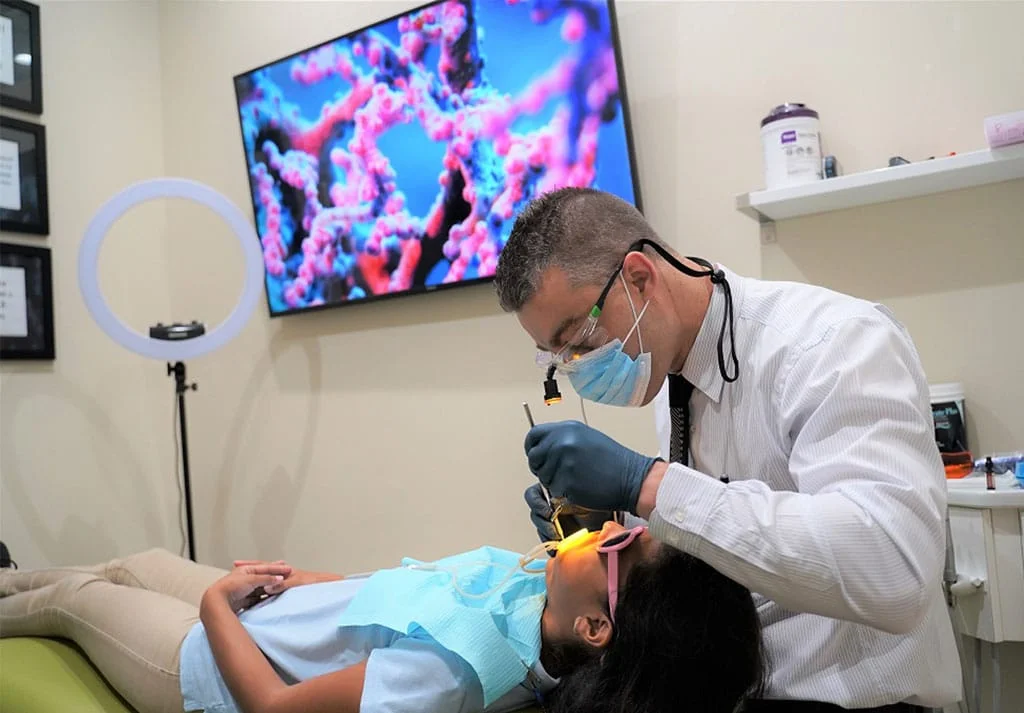
Follow these ideal brushing steps:
- Start brushing from the brace's top and move toward the tooth. Then, brushing back and forth.
- To ensure thorough cleaning, move back and forth over the area beneath the brace or bracket.
- Floss the lingual (back of the tooth) and occlusal (biting) surfaces (tooth area facing the tongue)
- To avoid harming the braces, wash your teeth in gentle circular strokes.
- Regular flossing is essential to remove food from braces. Floss gently to prevent any damage to the braces.
- Hold the floss in a 'C’-shape to clean all around the teeth. This manages to less damage the teeth.
In Conclusion:
Braces are an excellent choice to create the straight-aligned teeth look. So, if you want to straighten your teeth, talk to your dentist and ensure you are a good candidate for braces. You can consult with your adult orthodontics near me.How to help kids overcome an overbite or overjet?
Many children have overbites issues or overjets. Many parents think about taking their child to a pediatric dentist in Miami, fl, but fixing it is necessary. Overbites are needed to fix as soon as possible. If left untreated, the issues can develop into other oral and overall health issues in child development. The overbite or overjet can damage the teeth harshly.
In many cases, the overbite is so slight that it is not detectable easily. But with children, it's a different case to have an extreme overbite or overjet issues.
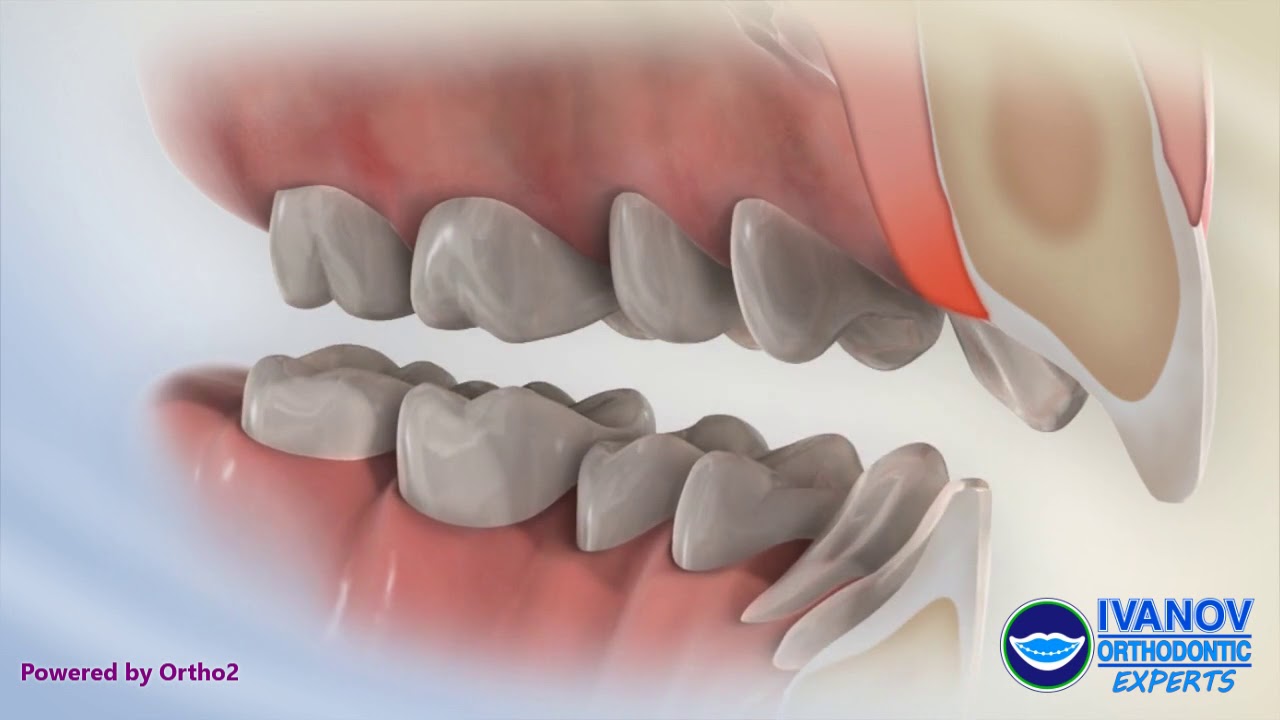
What are overbites and overjets?
An overbite is a vertical misalignment of the teeth. When you close your mouth, the upper front teeth overlap the lower teeth, referred to as a "deep bite."
A horizontal misalignment of the teeth is called an overjet. The bottom teeth place forward to the higher front teeth, which are pushed far ahead.
The main difference between these two biting issues is that an overbite highlights the depth of the bite. On the other hand, an overjet shows much of the upper front teeth protruding.
What problems can overbites and overjets create?
An extreme overbite or overjet in a child can lead to severe oral health problems, such as:
- Gum disease
- Problem biting, chewing, or swallowing food.
- Tooth decay in the mouth.
- Jaw problems like pain, stiffening, or temporomandibular disorders (TMD)
- A problem in opening and closing the mouth fully.
- Damage to the teeth and gums.
- Crowded or crooked teeth
- Speech problems
- Breathing difficulties
- Appearance concerns in public.
What treatment options are available?
Ensure to take your child to the dentist when their first teeth appear. The orthodontists specialists of florida will monitor your child's smile for alignment issues during regular visits.
Suppose you find an issue at age 7. In that case, your dentist will likely refer your child to an orthodontist specialist to treat the tooth and jaw alignment. The dentist will see the condition and how the child's permanent teeth, jaws, and face develop to make the treatment plan.
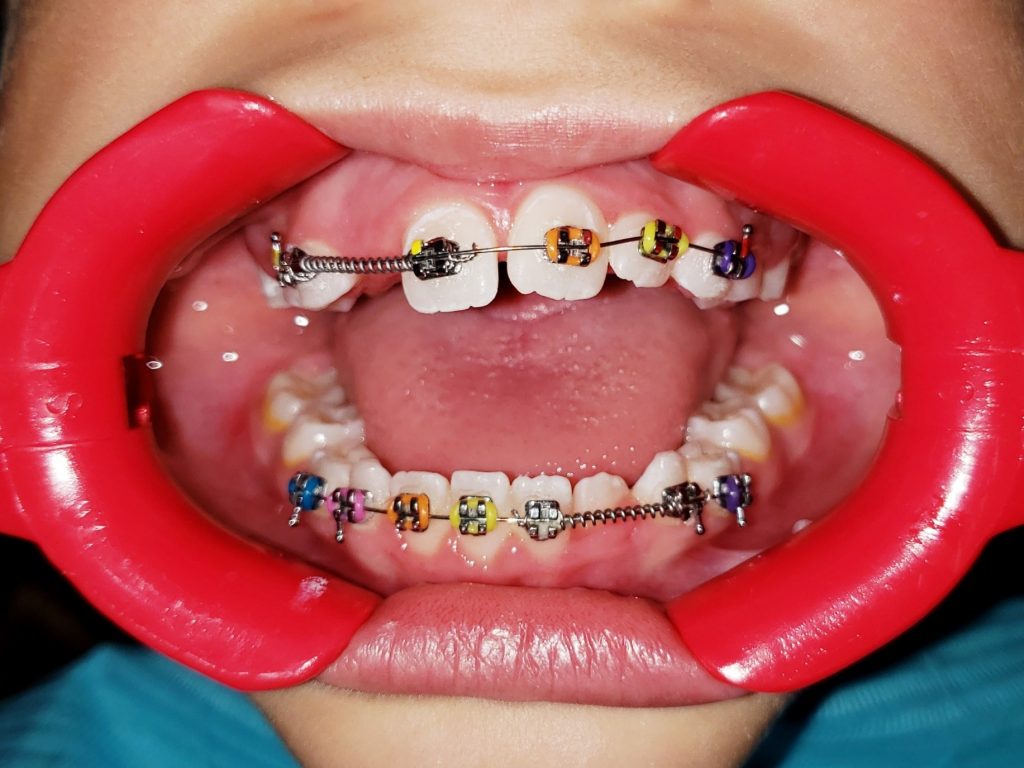
When the facial bones are still developing during adolescence, overbites and overjets are frequently best treated. Invisible aligners are a series of interchangeable clear plastic retainers that move teeth like regular braces, comprised of removable metal brackets put on teeth and connected by wire. Dental devices like a palatal expander can extend the mouth's surface to provide space for all teeth. Although jaw surgery is more frequently accomplished in adults, it becomes necessary in more severe cases to treat the problem.
Overjets and overbites are easily treated with overbite braces. Talk to your child's dentist about any issues you have regarding the growth of their teeth.
You must speak to your child's dentist about overbite before and after care and review more dental benefits to see what treatment is suitable for your child.
In Conclusion:
An overbite or overjet can continue developing, leading to other oral issues such as toothaches, headaches, ear pain, chewing and biting food difficulty, facial pain, neck problems, and jaw pain. Ask your dentist for overbite before and after braces images to see the results. A child with an overbite or overjet must visit an orthodontist to treat the problem as soon as possible to prevent it from worsening.
Article source : https://www.articleaffiliate.com/how-to-help-kids-overcome-an-overbite-or-overjet/
Are Bite Turbos Useful?
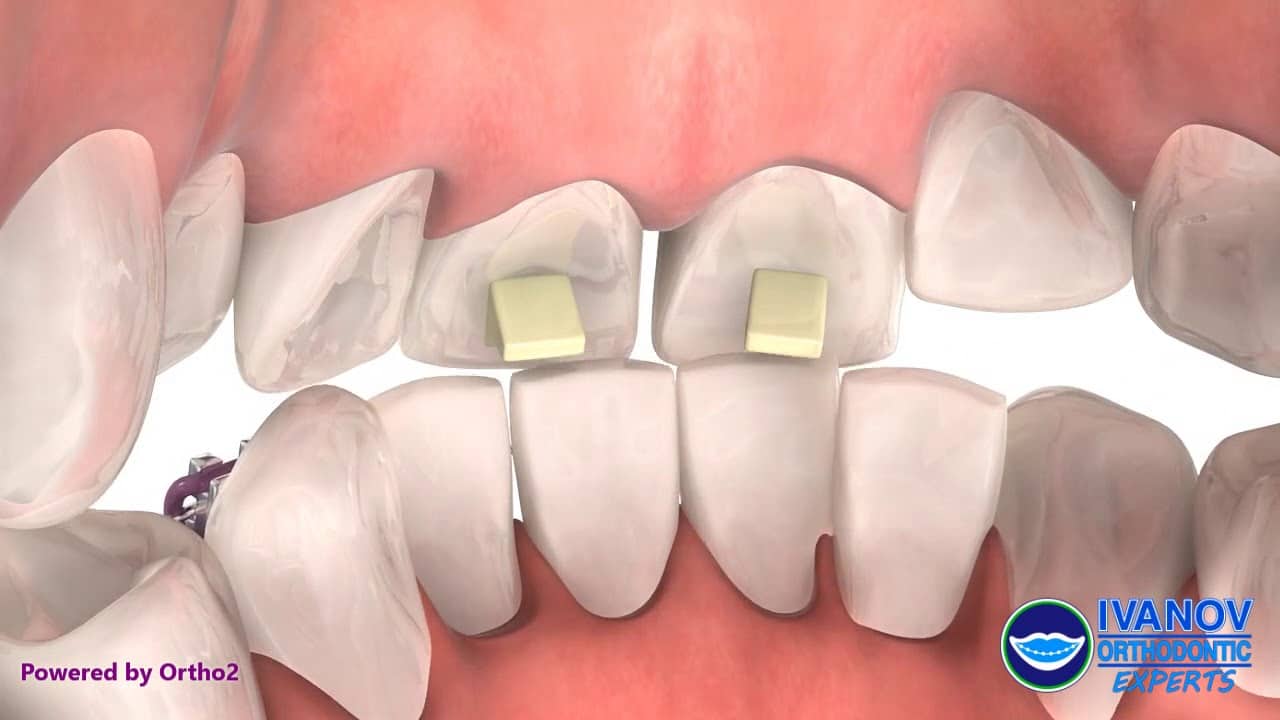
What to expect during the first adjustment?
The orthodontics specialists of Florida will position the bite turbos on the biting surface of the back molars or behind the upper front teeth. Your bite will differ considerably from how it usually does in both situations. Eating and chewing will be problematic as you become used to having only two biting surfaces in contact. But soon, you will get used to this new bite. Have patience and adjust your diet throughout the first several weeks of treatment.Why are bite turbos essential?
Bite turbos are used to split the upper teeth from the lower teeth to give space to the lower braces. There is not enough room to bond lower braces because of the overbite. You will bite down and snap off your lower braces without the help of the bite turbos. To prevent damage, the bite turbos naturally divide the upper and lower teeth briefly. By chance, they quickly correct a deep bite.What foods should you eat?
The dentist advises eating soft, mushy foods during the first adjustment time. During these early days of bite turbos, healthy options are soups, applesauce, purees, smoothies, yogurt, scrambled eggs, and soft macaroni and cheese. The best orthodontics near me will suggest you start consuming more hard foods but still chopped up into tiny pieces when the bite feels less odd. Be confident that the bite turbos will feel entirely normal by the second orthodontic appointment. By the second appointment, the turbos will feel more comfortable, and many of your teeth will be together.
How long will you have the bite turbos?
You need to wear the bite turbos until the overbite is almost corrected. Now, the lower and upper teeth can move quickly. Depending on your case, this will last from 6 to 9 months.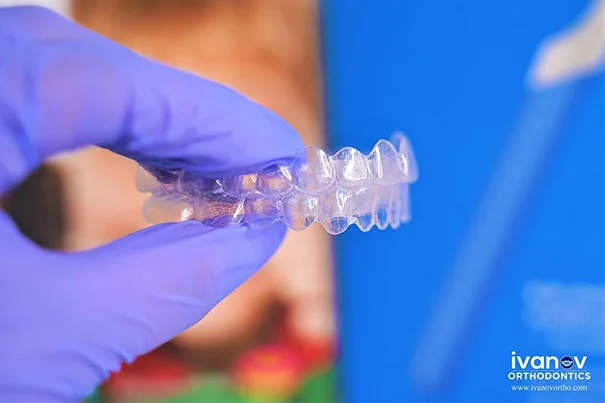 Every case is different and unique, but once your bite is corrected, the dentist will remove it easily with a polishing stone.
Every case is different and unique, but once your bite is corrected, the dentist will remove it easily with a polishing stone.In Conclusion:
Eat soft foods for the first week to adjust to the new type of bite. Visit your orthodontist in Aventura Florida, in 6 months to have good oral health. Call and visit your dentist for regular check-ups. Book an appointment now!
Why There's A Need For Lingual Braces?
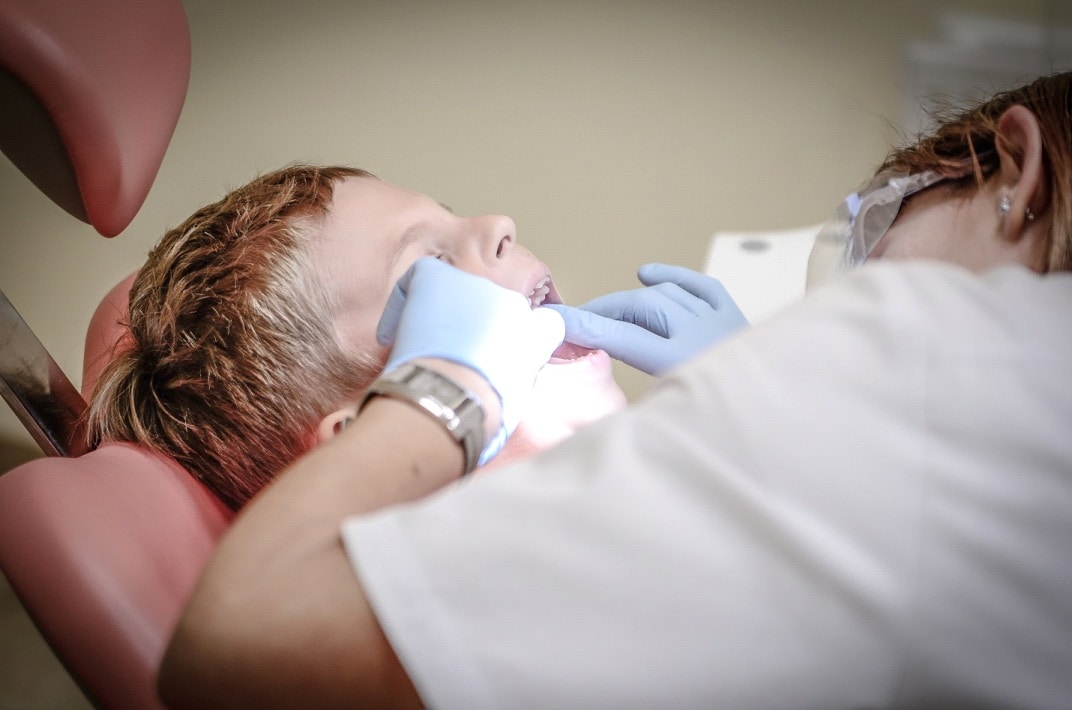
Who is the best candidate for lingual braces?
The only way to know if you're an ideal candidate for lingual braces is to visit your orthodontic specialist. Typically, lingual braces can correct the same kind of teeth misalignments as traditional braces and lower lingual holding arch. A study done by researchers shows that lingual braces accomplished treatment goals that doctors and patients had planned. However, lingual affordable braces Miami are only suitable for some. For example, patients with deep overbite issues can have some problems with brackets breaking off more frequently. At your first dental appointment, dentists closely examine your teeth to determine which braces options are more likely to work well for you.Will lingual braces give you a lisp?
Yes. To produce specific sounds when you talk, your tongue touches the backs of your teeth. Since the brackets are on the backs of your teeth, your speech will be impaired when you initially get lingual braces. While all braces have the potential to alter your speech patterns momentarily, with lingual braces, your speech might change for a month or longer.Studies have also revealed that the type of brackets your orthodontics specialists of Florida chooses to employ may affect the degree of speech impairment. Speech therapy techniques have greatly helped some individuals with their lingual lisps. Your tongue will eventually adapt to the lingual braces, and your speaking should return to normal.
Are lingual braces cause more discomfort than other braces?
Whatever kind of braces you choose, you will experience some discomfort or pain as your teeth slowly begin to move. Most patients describe this discomfort as a dull aching, and over-the-counter drug can usually make it go away. Eating soft meals like yogurt, rice, and soft-boiled eggs would be best until the pain disappears.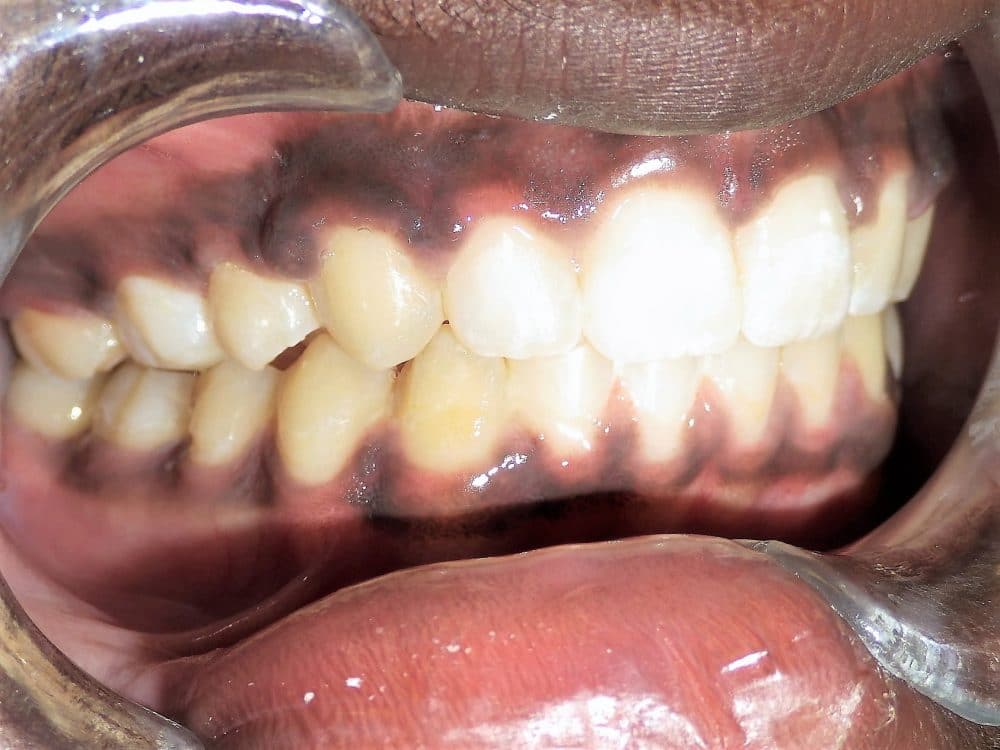
Conclusion
The above-provided details and information will help you learn some beneficial facts and details regarding lingual braces. For more informative aspects and updates, please visit ivanovortho.com.Why Can't Some People Get Invisalign?
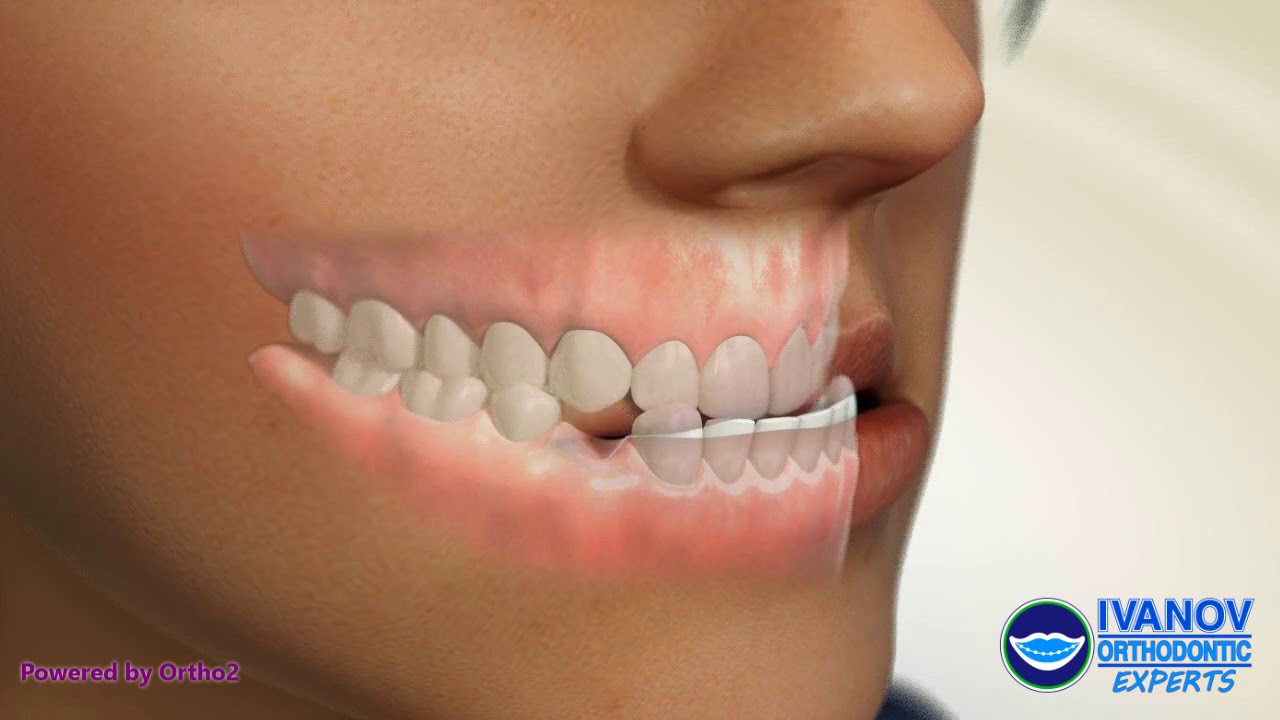
What Is Invisalign?
Who can receive Invisalign?
The ideal candidates for Invisalign may not be an option for those who have dental implants, bridges, or TMJ issues. Invisalign might not work if your teeth have irregular shapes or have deteriorated enamel. However, if these problems aren't severe, a professional Invisalign orthodontist might help you get economical Invisalign cost Miami.
What's the perfect age for dental Invisalign treatment?
